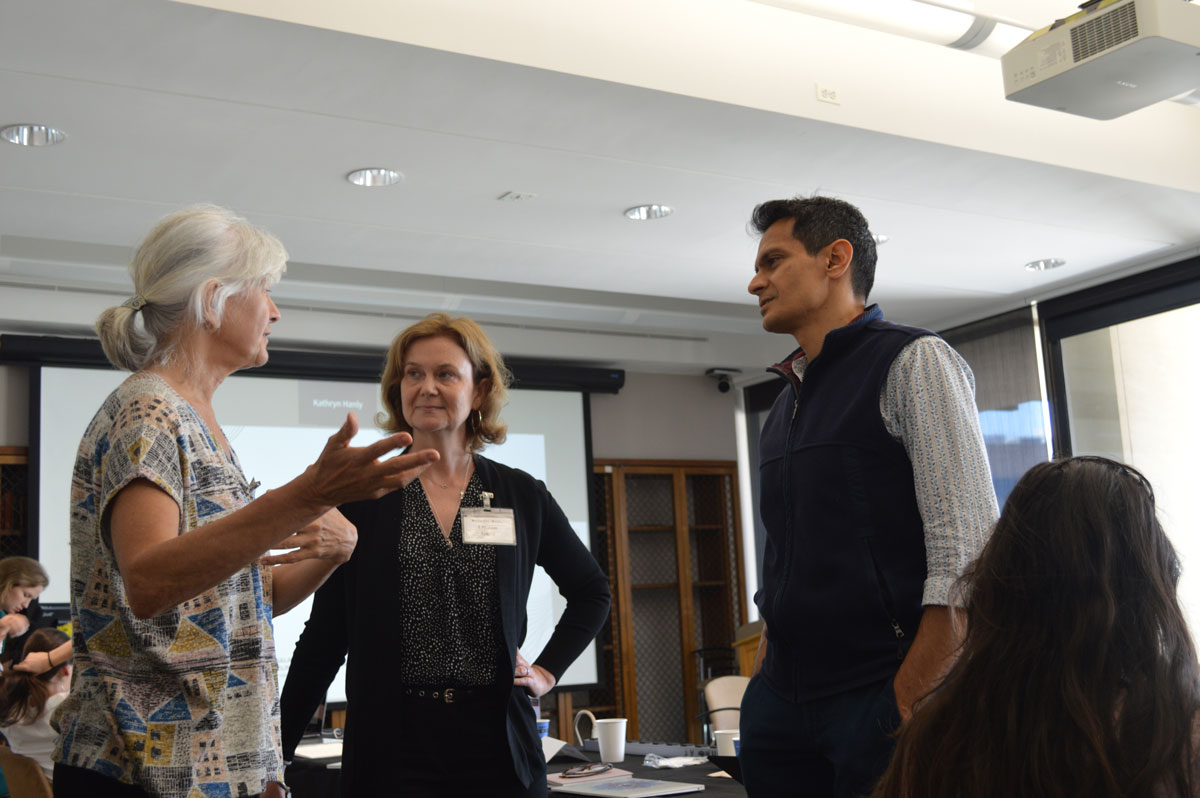Tackling the climate crisis: Local solutions for a global problem

Epidemiologist and infectious disease physician Megan Murray (left) launched the workshop in partnership with the Harvard Global Health Institute. Also pictured are Louise C. Ivers, faculty director of HGHI, and Satchit Balsari, associate professor, emergency medicine, Harvard Medical School.
The Harvard Climate Change and Health Collaborative hosted a second workshop on June 13-14 in partnership with the Harvard Global Health Institute’s new Scholarly Working Groups program. Building on the foundational work of the inaugural workshop last September, the two-day event brought together a consortium of Harvard faculty, researchers, and global public health leaders to discuss strategies to safeguard health for all amidst the escalating climate crisis.
As the health impacts of climate change intensify globally, some communities face disproportionately severe threats to their well-being, according to the National Oceanic and Atmospheric Administration. The global majority, particularly indigenous and rural communities where environmental degradation and infrastructure challenges are prevalent, bears significant health consequences due to climate change.
The Harvard Climate Change and Health Collaborative, led by Megan Murray, Rhonda Stryker and William Johnston Professor of Global Health at Harvard Medical School and faculty director for the Global Health Research Core in the Department of Global Health and Social Medicine, gathered a global consortium of 40 climate and health experts, researchers, and community advocates from 14 countries and regions, representing a range of perspectives from medicine, law, the humanities, environmental science, and community health, to explore integrated solutions for climate resilience.
“Climate change is indeed a global problem. But, as experts at our workshop pointed out, helping local communities with targeted interventions and support could be an effective solution to alleviate its harmful health impacts,” said Murray.
Customizing tools for specific communities
Attendees shared the lessons learned from their ongoing projects targeted to help vulnerable communities cope with climate health impacts, including sensors that monitor heat in real time to protect vulnerable populations from extreme heat events, application tools ensuring aid reaches the most affected areas swiftly, and educational toolkits focused on preparing frontline clinic responses for climate-related emergencies.
Experts agreed that these initiatives have the potential to significantly help mitigate issues that communities on the frontlines of climate change are facing.
Storytelling with integrity and authenticity
Stuart Harris, doctor and professor specializing in wilderness medicine suggested that by highlighting “the stories of cultural humility, robustness, and environmental awareness on the micro-scale,” broader audiences everywhere could learn from each other through their shared experiences and knowledge, and ultimately building solutions from a human-to-human perspective.
Critical in sharing these stories is ensuring that voices from marginalized communities are elevated. Health interventions must consider the local context to be effective and acceptable. To do so successfully and equitably, workshop members agreed that partnerships where power is shared, especially with indigenous communities, are essential.




